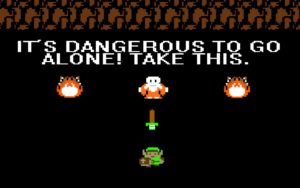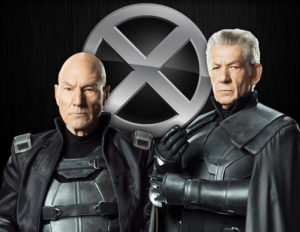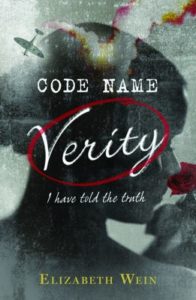I had a nightmare last night, and it was bad. There was no natural disaster, no fire, no car accident, no home invader, no endless falling through the abyss—indeed, no violence. I was at a writer’s convention, which for introverts can be almost as bad, and I didn’t know anyone there. Not a soul. The dream consisted of me making concerted efforts to join conversations and mingle with the other con-goers, and time after time it went badly. I stuck my foot in my mouth. I suddenly remembered that I hadn’t brushed my teeth that morning and had bad breath. Suddenly everyone spoke a foreign language and I couldn’t keep up. The reasons varied. The results didn’t.
It was a story of constant rejection. Which is a worse fear than falling through an endless abyss.
Eventually I did find someone I knew, a writing friend from my hometown. She was gregariously holding court with a bunch of people, and the sense of relief I felt when she welcomed me in and facilitated introductions was so intense that it literally woke me up.
Such is the power of friendship.
I’ve said before that I find friendship to be a more powerful force in many ways than romantic relationships. Going by my own personal tastes, it’s a more powerful force in fiction (sorry, romance readers, I know you outnumber me). In a larger sense, I think the argument could be made that it’s a more powerful force in the world. It seems to me that friendships often outlast romantic partnerships. How does the average length of a friendship compare to the average length of a spousal relationship? I wonder! Calculating these averages would be extraordinarily tricky.
I’ll take Thelma and Louise over Romeo and Juliet, thank you very much. I’ll take Han and Chewie over Han and Leia, Geordi and Data over Riker and Troi, Norm and Cliff over Sam and Diane. But maybe that’s just because fictional couples are plagued by narrative-mandated drama in a way that many real-life couples aren’t. Maybe.
When I think about my best friends, they’ve been with me for an awfully long time. Many of them have been in my life since high school or college, and they are crucial supports. If I lost my boyfriend (whom I love dearly, are you reading this?), I would be devastated. Devastated. But I’d need my friends to get through it.
Friends support us in a multitude of ways, but for now I want to focus on those who support us professionally. I’m talking about writer friends, and how until seven years ago I didn’t have any. Talk about the dark ages. The good times started to roll when I first attended Superstars Writing Seminar, a story I’ve told many times before and won’t go into now, since it’s a story shared by just about every writer on this blog and most of its guests.
But those friends still weren’t local. I couldn’t call them up and go out for a coffee. I didn’t manage to find those kinds of friends until four years ago, and it turned out they were right under my nose all this time. It’s hard to imagine being successful in my career without them. I see some combination of them once a week, often on Mondays, and they play a big role in kickstarting my productivity.
They also hang out with me at those otherwise scary writing conventions, pretty much ensuring that nightmares like the one I woke up from this morning can’t possibly happen.
 Evan Braun is an author and editor who has been writing books for more than ten years. He is the author of The Watchers Chronicle, a completed trilogy. In addition to writing science fiction, he is the managing editor of The Citizen. He lives in Niverville, Manitoba.
Evan Braun is an author and editor who has been writing books for more than ten years. He is the author of The Watchers Chronicle, a completed trilogy. In addition to writing science fiction, he is the managing editor of The Citizen. He lives in Niverville, Manitoba.







